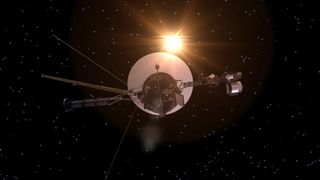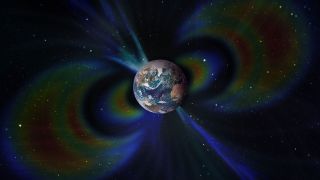earth
Latest about earth
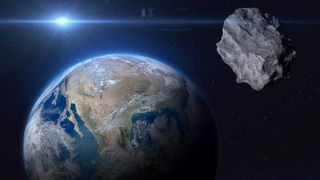
Mountain-size 'planet killer' asteroid will make a close approach to Earth today — and you can watch it live
By Harry Baker last updated
Shorty after 4 p.m. ET today (June 27), the mountain-size asteroid 2011 UL21 will come within 5 million miles of Earth, making it one of the largest space rocks to come that close to our planet for 125 years. Here's how to watch the close encounter live, or see it with a telescope.

The 2024 summer solstice will be the earliest for 228 years. Here's why.
By Ben Turner published
The time of the annual summer solstice will be the earliest it's been for centuries and will continue to creep forward every leap year until 2100. But why?
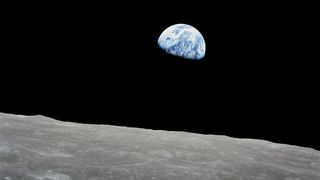
Space photo of the week: 'Earthrise,' the Christmas Eve image that changed the world
By Jamie Carter published
Snapped from lunar orbit in 1968 by NASA astronaut Bill Anders, who died this week at age 90, 'Earthrise' is perhaps the most iconic image of our planet ever taken.

Have days on Earth always been 24 hours?
By Sarah Wells published
Earth's day used to be five hours shorter, and it's predicted to continue lengthening over time.

The 1st 'major lunar standstill' in more than 18 years is about to occur. Here's how to see it.
By Jamie Carter published
A major lunar standstill is about to occur. The phenomenon happens every 18.6 years when the moon rises and sets at its most extreme points on the horizon, while also climbing to its highest and lowest point in the sky.

An encounter with 'something outside of the solar system' may have triggered an ice age on Earth
By Robert Lea published
Two million years ago, an encounter with a cold cloud of gas and dust could have caused our planet's "protective giant bubble" to draw back, potentially cooling our planet, new research claims.
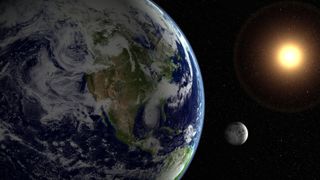
Which way does Earth spin? What about the other planets?
By Hannah Loss published
While Earth spins in the same direction as the sun, that's not the case for every planet in the solar system.

Stunning 'parade of planets' image shows 6 worlds aligned over Earth
By Ben Turner published
A stunning photo of the recent "parade of planets" shows Mercury, Mars, Jupiter, Saturn, Uranus and Neptune in alignment over Earth. It was captured from the U.K. on June 1.
Get the world’s most fascinating discoveries delivered straight to your inbox.


